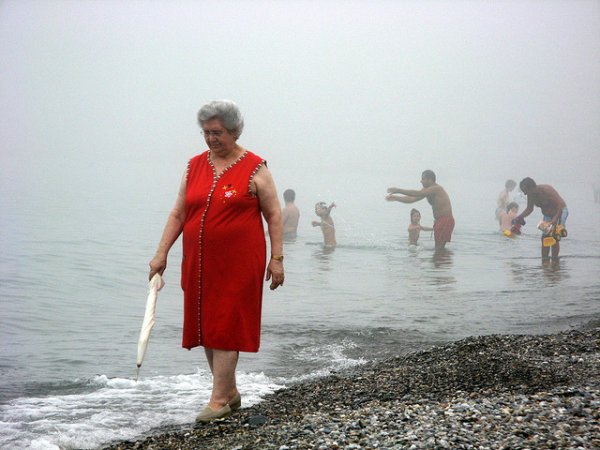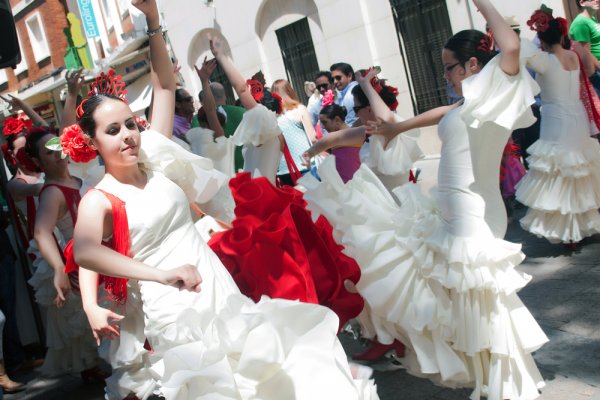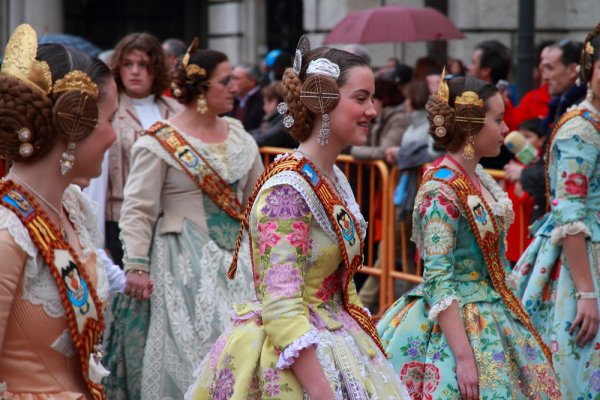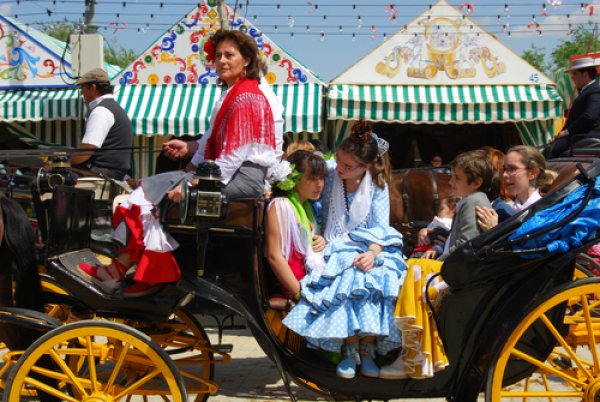Culture and Society: Women in Culture
General
Spain is a steadily developing country with a history of patriarchal domination and strong Roman Catholic influence on society. The integration of Spain with Europe, the decreasing role of the church, and the changing attitudes towards the role of women over the years, however, have moved Spanish women out of the sole role of performing family and household responsibilities. Now they are more active in higher education, politics, business, law, health, and all other sectors of Spanish life.
Into the 21st century, women hold nearly half of the seats in Spanish Parliament. There are a significant number of female lawyers, journalists, and medical staff in Spain as well. Statistics also reveal that about a third of Spanish business owners are women.
Urban and more affluent Spanish women have comparatively more prospects and privileges than their rural counterparts do. There are also substantial regional differences in the prosperity of women, with the country’s affluence generally concentrated in the north of the country.
Spanish women mostly wear modest and loose-fitting clothes like skirts and blouses or long pants. They tend not to wear shorts or sleeveless garments in public.
Legal Rights
The Spanish Constitution guarantees women the same rights as men in social, economic, and political areas. They have had the right to vote and contest elections since 1931 and also have the right to own, possess, and inherit property.
Abortion is allowed with the approval of two physical examiners, and in only certain circumstances like rape, fetal deformation, or to save the pregnant woman’s life.
Spanish women have the right to initiate divorces on various grounds, including mutual consent. Generally, mothers receive the custody of children along with financial support, called child maintenance, from the fathers.
Education
Spain offers equal access to free and compulsory public education for all girls and boys aged between six and 16. The average adult female literacy rate was equal to the average male’s rate at 99 percent. Primary and secondary school enrollment is also comparable between women and men. Most women enroll in university and others pursue technical diplomas. Academic institutions in Spain are largely coeducational.
Female participation is nearly half of the total labor force.
Dating, Marriage, and Family
Spanish women choose their own partners. Spanish girls and boys start dating from 14 years of age, and usually meet through group activities or in social settings. The legal age for marriage is 18 years, and the median age at which women first marry is in their early 30s, while men marry in their early to mid-30s as well.
The majority of Spanish women retain their maiden names after marriage; however, a few women combine their maternal surname with the husband’s paternal surname, suffixed with a de. Traditionally, women were primarily responsible for all household chores and child rearing, while men met the economic needs of the family, but a recent change in Spanish law requires men to share 50 percent of domestic work with women.
Women have the legal right to hold assets separate from their husbands. Legislation prohibits polygamy, but it still occurs in some remote areas of Spain.
Spanish society gives substantial importance to motherhood, and many believe that a woman’s life is incomplete if she has no children.
A divorced wife is entitled to receive compensation from her husband for all the work done for him or the household, in the form of either money or assets. The Spanish courts usually grant split, and not joint, custody of children with a preference given to the mothers. Child maintenance is paid in terms of a percentage (personal minimum tax) of the non-custodial parent’s income.
Health
Spain grants women and men equal access to the widespread network of medical services. The infant mortality rate is about two deaths per 1,000 live births, and the maternal mortality rate is four deaths per 100,000 live births. The average life expectancy of Spanish women is 83 years.
Traditional Spanish society regards family planning as offensive and has inhibited women from using contraception. Nevertheless, today’s women have the legal right to make their own healthcare decisions, including abortion and birth control, and the use of contraceptives is quite high, at nearly 70 percent.
Statistical sources include:
Inter-Parliamentary Union, Women in National Parliaments
United Nations Development Project, Human Development Report
Copyright © 1993—2025 World Trade Press. All rights reserved.

 Spain
Spain 






